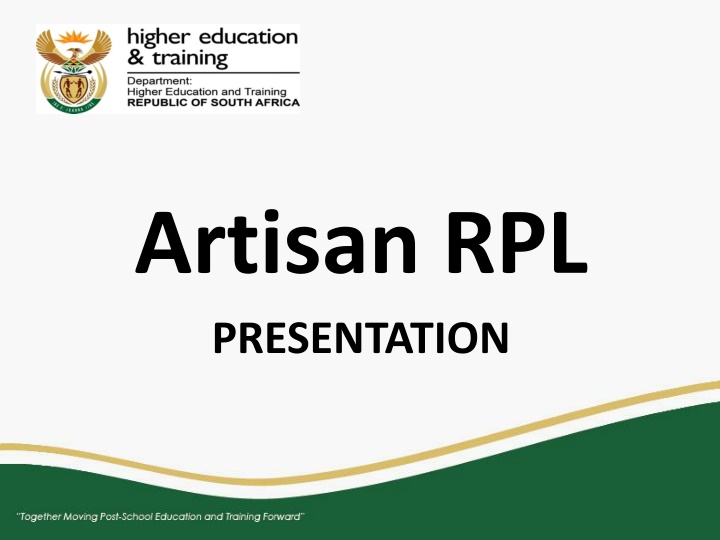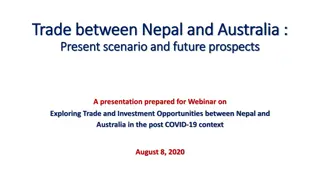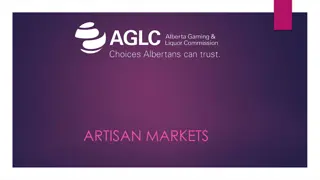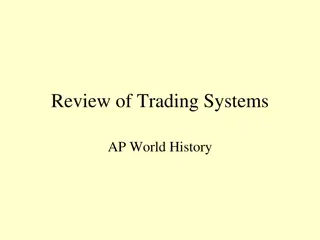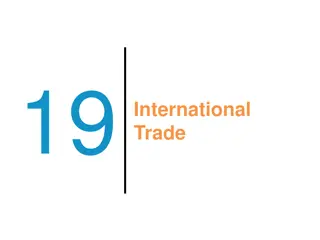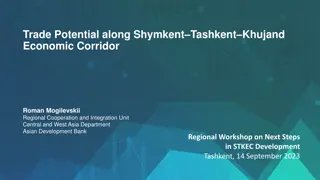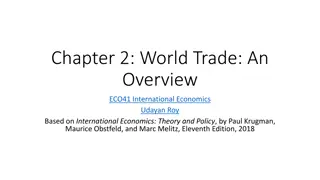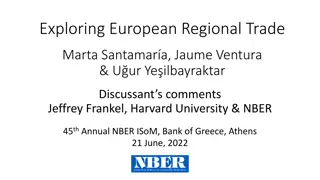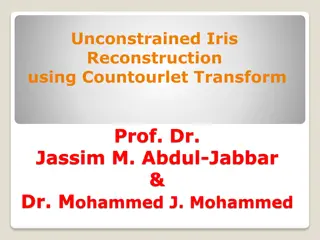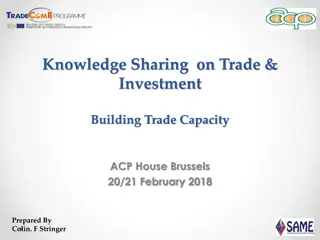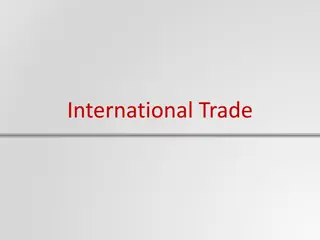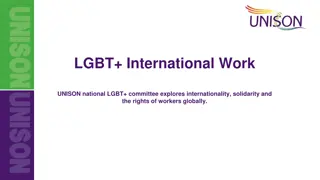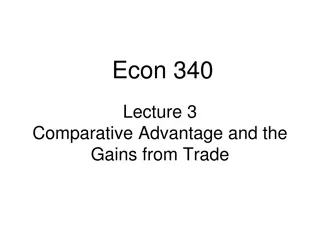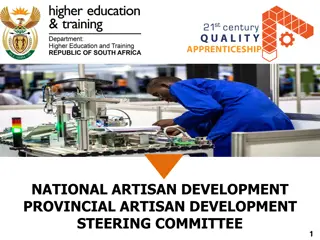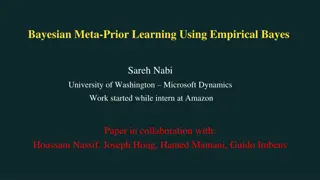Advancing Recognition of Prior Learning for Artisan Trade Workers
Artisan RPL Presentation highlights the socio-economic rationale behind the Artisan RPL program to provide formal recognition for semi-skilled trade workers. The project aims to address past imbalances, establish a clear pathway to trade tests, and standardize ARPL practices across sectors. Various pilot projects have shown promising outcomes, with approved toolkits and guidelines further advancing the implementation of ARPL for trades like Diesel Mechanic, Welder, Fitter, Boilermaker, and more. The current status includes the gazetting of criteria and guidelines, toolkits approval, and ongoing capacity development for ARPL implementation.
Download Presentation

Please find below an Image/Link to download the presentation.
The content on the website is provided AS IS for your information and personal use only. It may not be sold, licensed, or shared on other websites without obtaining consent from the author.If you encounter any issues during the download, it is possible that the publisher has removed the file from their server.
You are allowed to download the files provided on this website for personal or commercial use, subject to the condition that they are used lawfully. All files are the property of their respective owners.
The content on the website is provided AS IS for your information and personal use only. It may not be sold, licensed, or shared on other websites without obtaining consent from the author.
E N D
Presentation Transcript
Artisan RPL PRESENTATION
BACKGROUND ARPL arises from a socio-economic rationale influenced by the need to redress one of the artisan environment spast imbalances where semi-skilled trade workers were not afforded any form of formal recognition in spite of the trade experience they have accumulated over the years in their workplace environment. Consequently conversational engagements between the Minister of Higher Education and Training, the DG for Higher Education and Training, organised labour formations and organised business formations resulted in the conceptualisation of this pilot project and its subsequent funding, the ultimate aim being the establishment of a system of semi-skilled trade workers trade progression and formal recognition through an artisan RPL process.
OUTCOME OF INITIAL PILOT WHICH PROVIDED ARPL MANDATE: - To redress past imbalances - To provide an access pathway to Trade Test - To establish a single standardised practice for ARPL across all sectors of the economy
OTHER PARALLEL AND SUBSEQUENT PILOT PROJECTS USING THE MODEL AND TOOLKITS APPROVED - Back yard operators (BYO)* semi-skilled artisan worker operating in the communities (approx. 800)- NSF funded. Very few have attempted a trade test pass rate expected to be 10-15% - Western Cape Department of Economic Development (30 candidates 67% pass rate) - ESKOM Electrical line mechanics (approx. 95; 80% pass rate) - NTIP Toolmakers (145 60% pass rate for those who have been trade tested)
WHERE ARE WE RIGHT NOW? Criteria and Guidelines for the Implementation of ARPL gazetted on 17 March 2017 (Vol. 621; No: 40691) Toolkits approved by NAMB and letter signed off by DG for implementation on 19 October 2017 for the following trades: Diesel Mechanic Welder Fitting Boilermaker and Fitter NB: Regulation 11(5) would no more apply for these trades from this date
WHERE ARE WE RIGHT NOW? Developed a Implementation Plan for ARPL Developed a Plan and Guidelines for implementation at TTCs Approval from DG for phased implementation of ARPL ARPL launched by the Minister on 15 September 2017 Conducted capacity development of TTCs for implementation of ARPL POST-IMPLEMENTATION Support and Monitoring
Application Orientation Evaluatory PoE Advocacy Technical Panel Evaluation Non - compli ant Registration A B Knowledge Assessment A Candidate evaluation/ Interview Feedback and referrals Practical Assessment Trade Test NYC Technical PoE B Workplace Experience Evaluation Competent QCTO Cert NAMB Gap Closure ARPL Toolkit WP Training Centre Accredited SDP
GUIDELINES FOR ARPL DURATION at TTCs SIFTING PROCESS PHASE ASSESSMENT ADMINISTRATION Total 1,5 Hours 9,5 Hours 1,5 Hours 12,5 Hours SDP DURATION (Guideline) GAP CLOSURE/ TRADE TEST PREPARATION DURATION BASED ON EXPERIENCE (suggested maximum 2-3 months) Any additional time can be considered as training TRADE TEST Duration: 2 to 3 Days
